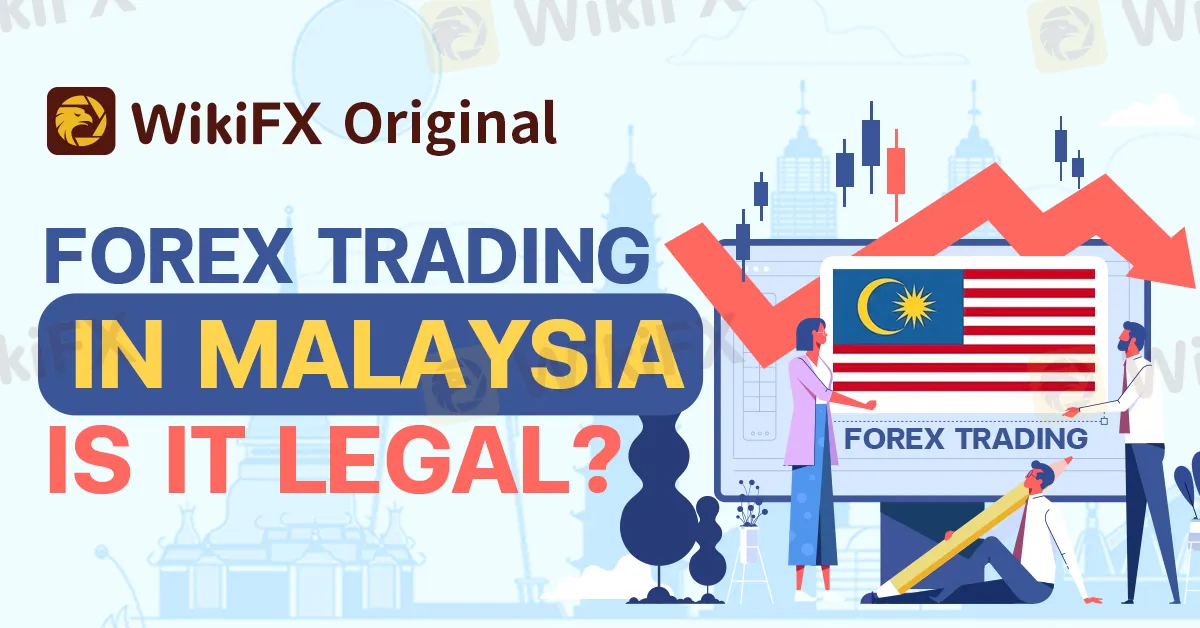简体中文
繁體中文
English
Pусский
日本語
ภาษาไทย
Tiếng Việt
Bahasa Indonesia
Español
हिन्दी
Filippiiniläinen
Français
Deutsch
Português
Türkçe
한국어
العربية
Forex Trading in Malaysia | Is It Legal?
Abstract:Is it legal to trade forex in Malaysia? Yes, to answer briefly. According to Forex Malaysia, Bank Negara Malaysia declared in 2012 that only licenced commercial banks, Islamic banks, investment banks, and international Islamic banks are permitted to conduct forex trading, often known as the buying and selling of foreign currency, in Malaysia. The platforms or brokers one chooses to use must abide by these guidelines.

Forex trading, or the exchange of foreign currencies, is legal in Malaysia. The country has a well-developed financial market, and the Bank Negara Malaysia, the country's central bank, regulates all financial institutions, including those that provide Forex trading services. The Bank Negara Malaysia has imposed certain restrictions on Forex trading to protect investors from fraudulent activities. For example, traders are not allowed to trade on margin, and the maximum leverage brokers can offer is up to 1:30.
However, it is important to note that while Forex trading is legal, it is not necessarily regulated similarly to other financial markets, such as stocks or commodities. This means traders should be cautious and thoroughly research any broker they intend to use. Since 2020, the SCM has begun issuing warnings against Forex brokers operating without a local licence. Until recently, the SCM had turned a blind eye to Malaysian Forex traders utilising offshore brokers to trade Forex and other CFDs. Warnings have been issued against numerous reputable and otherwise well-regulated brokers, including HotForex, FXTM, Tickmill, Oanda, OctaFX, and FBS.
The SCM has stated that these companies violate Malaysia's Capital Markets and Services Act 2007 and that, if found guilty, company officials risk prison time and hefty fines. However, no arrests have yet been made. The SCM is specifically cautioning these brokers from carrying out the unauthorised capital market activities of dealing securities without authority from the SCM.
Despite these restrictions, Forex trading remains a popular activity in Malaysia, with many traders attracted by the potential for high returns. However, as with any investment, it is important for traders to understand the risks involved and only invest what they can afford to lose.
The Exchange Control Act of 1953, the Securities Commission Act of 1993, the Money Changing Act of 1998, and the Capital Markets and Services Act of 2007 are the primary laws and regulations in place to support forex and associated operations. Therefore, the brokers that a Malaysian trader chooses must comply with these rules.
Bank Negara Malaysia, the Malaysian Investment Development Authority (MIDA), Bursa Malaysia, the Securities Commission of Malaysia, the Finance Accreditation Agency (FAA), and the Shariah Advisory Council (SAC) are the primary regulatory organisations and commissions that oversee the foreign exchange industry.
It is also important to note that Malaysia is a Muslim-majority country, and Islamic laws are also applied to financial transactions. That's why some Forex brokers offer swap-free accounts for Muslim traders who comply with Sharia laws.

Check out this post specially curated by WikiFX with some reputable broker recommendations: https://www.wikifx.com/en/best/best-forex-brokers-in-malaysia.html.

Disclaimer:
The views in this article only represent the author's personal views, and do not constitute investment advice on this platform. This platform does not guarantee the accuracy, completeness and timeliness of the information in the article, and will not be liable for any loss caused by the use of or reliance on the information in the article.
Read more

XM Group: A Leading Multi-Asset Broker Honored for Exceptional Customer Experience and Service
XM Group, operating under the entity name XM Global Limited, has emerged as a prominent force in the global forex and derivatives trading industry, boasting over 15 million clients worldwide. Since its inception in 2009, XM has evolved into a reputable multi-asset broker, offering an extensive range of more than 1400 trading instruments across 10 asset classes. With a strong emphasis on corporate values, innovative technology, and exceptional customer service, XM has established itself as a true industry leader.

NAGA Adds UAE, Saudi Stocks to Platform with Zero Commissions
NAGA introduces UAE and Saudi Arabian stocks to its trading platform, offering zero commissions and expert tools like Autocopy to tap into booming Middle Eastern markets.

Unleash Your Trading Skills: Join the WikiFX KOL India Trading Competition!
Are you ready to take your trading expertise to the next level? WikiFX is excited to announce an extraordinary India Trading Competition designed to connect passionate forex traders, enhance user engagement, and reward trading excellence!

Moomoo Financial & M1 Finance Face FINRA Sanctions for Influencer Misconduct
FINRA has fined Moomoo Financial and M1 Finance for failing to ensure compliance with regulatory standards in their social media influencer programmes, highlighting the growing need for robust oversight in digital marketing within the financial services industry.
WikiFX Broker
Latest News
Robinhood Launches Ethereum Staking with 100% Rewards Match
Kraken Closes NFT Marketplace Amid New Product Focus
Philippine Banks Launch PHPX Stablecoin to Transform Payments
Broker Review: Is FOREX.com a solid Broker?
Tether to Discontinue EURt Stablecoin Amid Regulatory Shifts in Europe
Adani’s Bribery Scandal! SEC Charges, Major Fallout & Adani’s Stand
Unleash Your Trading Skills: Join the WikiFX KOL India Trading Competition!
NAGA Adds UAE, Saudi Stocks to Platform with Zero Commissions
ED uncovered 106 Crore "Nagaland Crypto Scam"
Philippine Scam Ring Targets Aussie Men with Fake Crypto Offers
Currency Calculator


